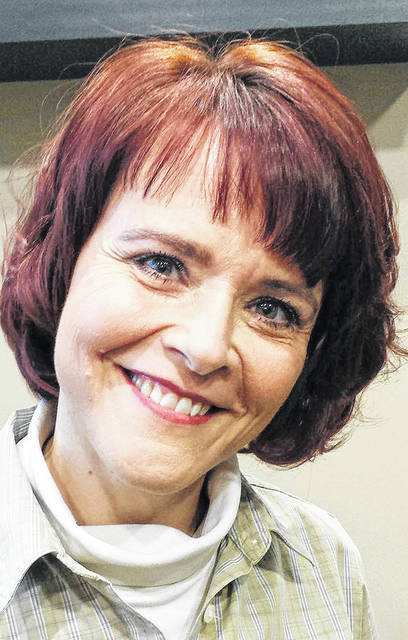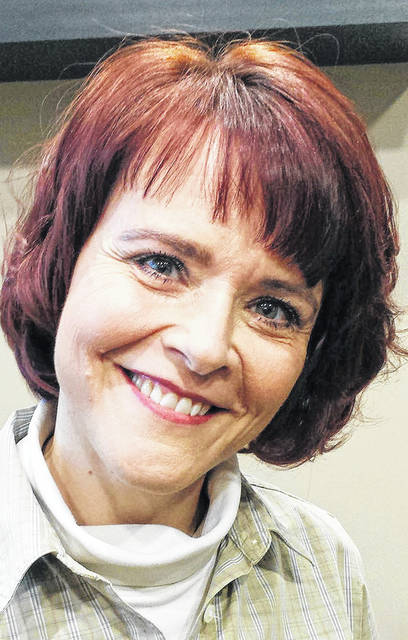

As my eyes quickly scanned the message, words jumped off the screen: “I came across your personal story concerning psychotic breakdown and your journey in recovery. I’m 65 years old and feel helpless.”
As Bill recounted the events in his son’s life recently, my stomach convulsed. For an instant, I felt helpless, but then I reminded myself I wasn’t. “I have vital information I learned only through experience that Bill needs to understand,” I thought.
My mental illness journey began when I went five nights without sleep. I walked by my bathroom sink and smelled lavender. My walk-in closet felt as cold as a butcher’s freezer. I began hearing and seeing demons. That weekend, my parents came down. Immediately, my mother knew something wasn’t right. That night I confessed to her, “I can’t tell what’s real and what’s not.”
She said, “It’s time to go to the hospital.”
After I got off the Behavioral Health Unit, my doctors expressed regret that I had not come to the emergency room sooner. Denying a soldier sleep is a form of torture designed to break their will.
“When it comes to mental illness, it all comes down to sleep,” my first psychiatrist explained.
The brain is the most marvelous and delicate organ in the body. In my case, the portion of my brain responsible for sleep was not working. However, the portion responsible for REM sleep was working. I was in effect dreaming with my eyes open. Hallucinations can affect all of your five senses. That is why it is so important not to try to convince someone in psychosis that what they are experiencing isn’t real. My psychotic memories are as vivid to me as any memory, even after a decade.
Science substantiates my lived experience.
“If we look at clinical correlation between sleep, not only just depression, but dementia and psychosis, we know it’s related and we’ve seen it,” says Dr. Anthony Harris, clinician, and chief innovation officer for Workcare. “We see a phenomenon in hospitals and nursing homes widely known called ‘sundowning.’ A patient is sundowning when they exhibit symptoms of dementia or acute psychosis because of the lack of sleep. Sundowning is common in the ICU, where bells and whistles are going off all the time, and where patients are frequently poked and prodded to get vitals, etc. We know sundowning happens because of lack of sleep.”
As a NAMI presenter, we speak at high schools and college campuses, often after a suicide occurs.
“What could I have done differently?” everyone wants to know.
As a person diagnosed with psychotic features, I suggest actively monitoring sleep patterns of those you love. As the plotline of numerous horror movies substantiates, nothing is so terrifying as when your senses betray you.
The importance of sleep science validates that sleep and mental health go together. According to the National Institutes of Health, “Sleep dysfunction is extremely common in patients with schizophrenia. Recent research indicates that sleep dysfunction may contribute to psychotic experiences such as delusions and hallucinations.”
“When we talk about the understanding of sleep deprivation and its impact to mental health status, there is definitely a strong correlation.” Dr. Harris confirms. “If you look at the workforce specifically, in some cases 30% to 40% of the workforce is affected by some type of not just sleep deprivation, but also fatigue. Lack of sleep is one of the main factors in suffering from chronic fatigue and can also lead to increased risk of depression, anxiety and mental health disorders.”
The CDC recommends establishing a consistent sleep regimen, saying, “Go to bed at the same time each night and get up at the same time each morning, including on the weekends.”
The CDC also recommends avoiding electronic devices, alcohol, caffeine and large meals before bedtime. Physical activities contribute to your ability to sleep as well.
“Physical exercise can help regulate our circadian rhythms,” said Dr. Cathy A. Tirrell, licensed clinical psychologist for Tirrell Forensic Assessment Services, PLLC.
“A healthy sleep regimen is critical to self-care,” Tirrell said. “When helping to improve someone’s sleep quality, I first ask them to imagine the best sleep setting that involves all of their senses. For instance, what does your bedroom look like and how can you make it more peaceful and soothing? Do you have weighted or thick blankets or prefer light sheets? Do you like it cold or hot in your bedroom? Are you turning off your phone, television, and tablet an hour before bed? Have you thought of drinking warm milk or chamomile tea before bed? What type of music or white noise might help you sleep more soundly?”
A decade of lived experience and five hospitalizations has taught me the value of monitoring my sleep. My husband and I have an agreement: if I go three nights with less than five hours of sleep, we call the doctor. Changes in sleeping habits or feeling tired and low energy are one of the NAMI Warning Signs and Symptoms. If this persists, call your doctor.
Do you know someone who is battling anxiety, loneliness, depression, or suicidal thoughts? Ask them if they have been sleeping regularly. Every 12 seconds someone dies by suicide in this country, according to SAVE. I lost a friend to suicide because he daily wrestled with hallucinations and psychosis. For more information about the warning signs of mental illness, contact NAMI.
Back to my phone call with Bill, I told him the importance of sleep based on my lived experience. He ended the call by saying, “I didn’t know who to talk to: I can’t thank you enough.”
As I said to Bill, “As we say at NAMI, if I made a difference in one life today, I have done my job.”
Danei Edelen is the president for the NAMI Brown County Ohio affiliate. She is a mental health advocate for the Brown County Board of Mental Health & Addiction Services. For more information on NAMI Brown County Ohio, call 937-378-3504 ext. 102 or email [email protected].


